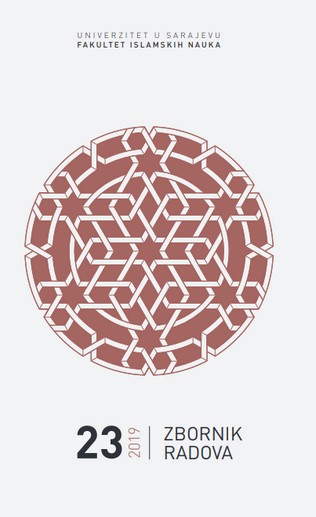الفتوى الشرعية وأهميتها في المحافظة على الهوية الحضارية لمسلمي دول جنوب شرق أوربا
Fatwa and its Significance in Preserving the Cultural Identity of Muslims in Southeast Europe
On the example of Bosnia and Herzegovina
Author(s): Junus Al-AzuziSubject(s): Human Geography, Regional Geography, Islam studies, Sociology of Religion, Identity of Collectives, Sharia Law
Published by: Fakultet islamskih nauka u Sarajevu
Keywords: sharia legal solution (fatwa); civilization identity; institution in charge of issuing fatwas; fatwas issued by sheikhs; themes of sharia solutions (fatwas); works on sharia solutions (fatwas);
Summary/Abstract: Geographically, Bosnia and Herzegovina is part of Eastern Europe, while in a historical and religious sense, it has been associated with the Islamic world since the Ottoman conquest of this region during the 15th century. It is inhabited by Bosniaks, Serbs, Croats, Albanians, Turks, Romanies and others. Throughout its history, from the Austro-Hungarian monarchy, through communist Yugoslavia, to Serbo-Croatian ambitions in the last war, Bosnia and Herzegovina has been exposed to a number of disasters, most of which were related to wars and aggressions. These have caused Muslims living in Bosnia and Herzegovina to be repeatedly cut off from their brothers in other countries, to be prevented from performing religious practices and establishing religious education, and to live divided among nationalities and forces constantly seeking their subjugation and disappearance. Therefore, Muslims in these areas needed a clear legal sharia solution (fatwa) that would facilitate their social, religious, political and military life and protect them from the iron grip of their enemies. Thus, several fatwas have appeared known by the names of those who issued them, (...)
Journal: Zbornik radova Fakulteta islamskih nauka u Sarajevu
- Issue Year: 2019
- Issue No: 23
- Page Range: 159-179
- Page Count: 21
- Language: Arabic

